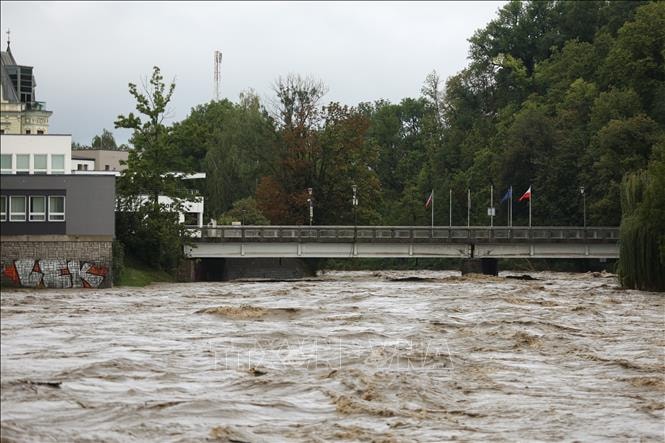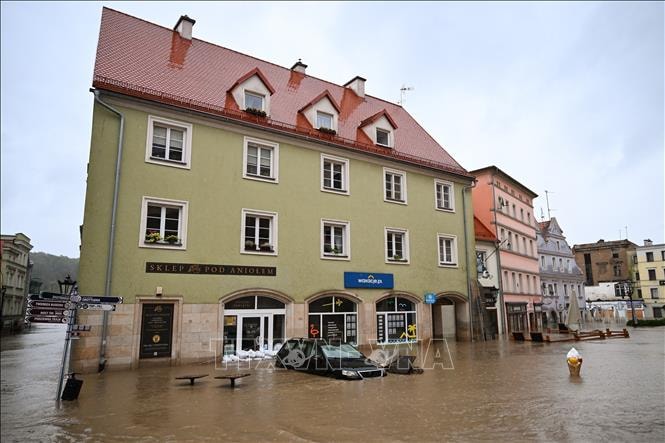On September 16, water in many rivers in Central Europe overflowed, causing widespread flooding, killing at least 10 people.

The border region between the Czech Republic and Poland was hit hard over the weekend. Flooding caused several bridges to collapse and homes to be destroyed, while villages and towns in eastern Romania were inundated. The Polish government is scheduled to meet on September 16 to declare a state of disaster.
Although water levels in rivers in the Czech-Polish border area have begun to recede, flooding is still widespread.
In the Czech Republic, the Morava River rose overnight, submerging 70% of Litovel, a city 230 km east of Prague with a population of nearly 10,000. Many schools and medical facilities were closed. Meanwhile, flooding in Ostrava, the Czech Republic, forced the closure of a power plant that supplies heat and hot water to the city, as well as two chemical plants.
Czech Prime Minister Petr Fiala said more than 12,000 people in the country had to be evacuated, and convened a special government meeting on September 16 to discuss the flood situation.
In Romania, floods killed six people over the weekend.

Thousands of firefighters, police and soldiers have been mobilised to respond to the floods in the past 24 hours as the government is still determining the extent of the damage, Polish Deputy Interior Minister Czeslaw Mroczek said.
In Slovakia and Hungary, the authorities in the capitals of Bratislava and Budapest are preparing measures to cope with the rising waters of the Danube.
European Commission President Ursula von der Leyen has called for solidarity in the affected areas, saying the EU will provide support in various ways to the affected countries.